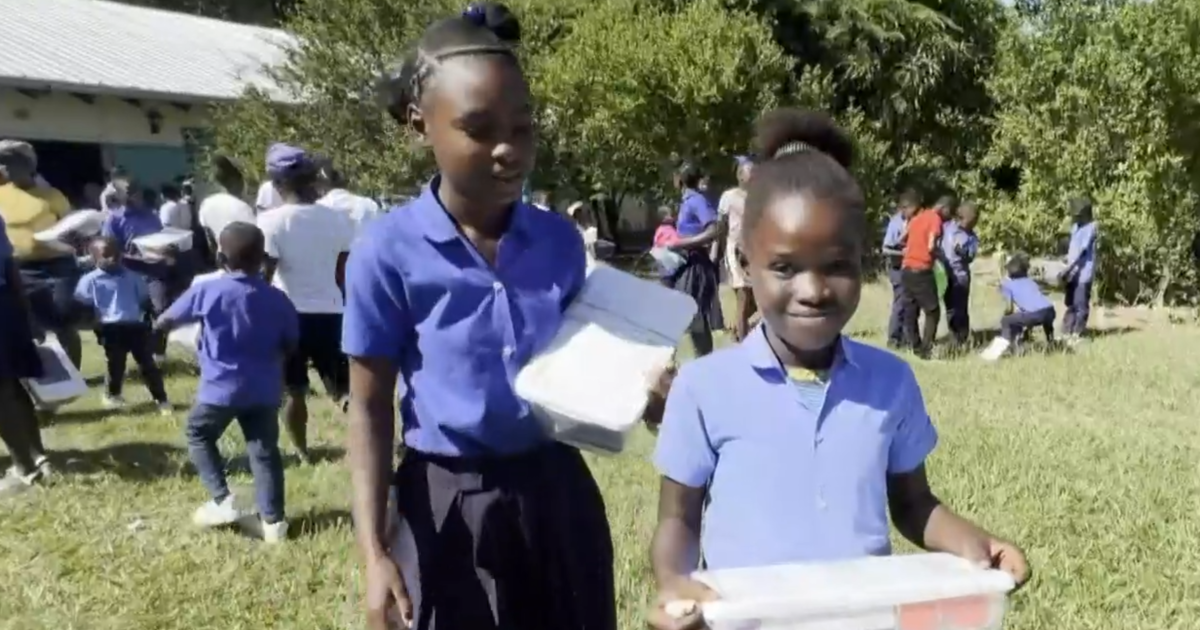
Meet the volunteers risking their lives to deliver Christmas gifts to children in Haiti

Haiti has been racked by political instability and intensifying, deadly gang violence. Amid a Federal Aviation Administration ban on flights from the U.S. to Haiti, some volunteers remain unwavering in their determination to travel to the Caribbean country to help the innocent people caught in the middle of the destabilization.
Nearly 3 million children are in need of humanitarian aid in Haiti, according to UNICEF.
A missionary group in south Florida says they feel compelled to continue their tradition of bringing not just aid, but Christmas gifts to children in what the World Bank says is the poorest nation in Latin America and the Caribbean.
“Many people on the brink of starvation … children that need some joy at this time of the year,” said Joe Karabensh, a pilot who has been flying to help people in Haiti for more than 20 years. “I definitely think it’s worth the risk. We pray for safety, but we know the task is huge, and we’re meeting a need.”
His company, Missionary Flights International, helps around 600 charities fly life-saving supplies to Haiti. He’s flown medical equipment, tires, and even goats to the country in refurbished World War II-era planes.
But it’s an annual flight at Christmas time, packed full of toys for children, that feels especially important to him. This year, one of his Douglas DC-3 will ship more than 260 shoe-box-sized boxes of toys purchased and packed by church members from the Family Church of Jensen Beach in Florida.
Years ago, the church built a school in a rural community in the northern region of Haiti, which now serves about 260 students.
A small group of missionaries from the church volunteer every year to board the old metal planes in Karabensh’s hangar in Fort Pierce, Florida, and fly to Haiti to personally deliver the cargo of Christmas cheer to the school. The boxes are filled with simple treasures, like crayons, toy cars and Play-Doh.
It’s a tradition that has grown over the last decade, just as the need, too, has grown markedly.
Contractor Alan Morris, a member of the group, helped build the school years ago, and returns there on mission trips up to three times a year. He keeps going back, he said, because he feels called to do it.
“There’s a sense of peace, if you will,” he said.
Last month, three passenger planes were shot flying near Haiti’s capital, but Morris said he remains confident that his life is not in danger when he travels to the country under siege, because they fly into areas further away from Port-au-Prince, where the violence is most concentrated.
This is where the WWII-era planes play a critical role. Because they have two wheels in the front — unlike modern passenger planes, which have one wheel in the front — the older planes can safely land on a remote grass landing strip.
The perilous journey doesn’t end there – after landing, Morris and his fellow church members must drive another two hours with the boxes of gifts.
“I guarantee, the worst roads you’ve been on,” Morris said.
It’s a treacherous journey Morris lives for, year after year, to see the children’s faces light up as they open their gifts.
Asked why it’s important to him to help give these children a proper Christmas, Morris replied with tears in his eyes, “They have nothing, they have nothing, you know, but they’re wonderful, wonderful people … and if we can give them just a little taste of what we think is Christmas, then we’ve done something.”
Kati Weis
Source: cbsnews.com